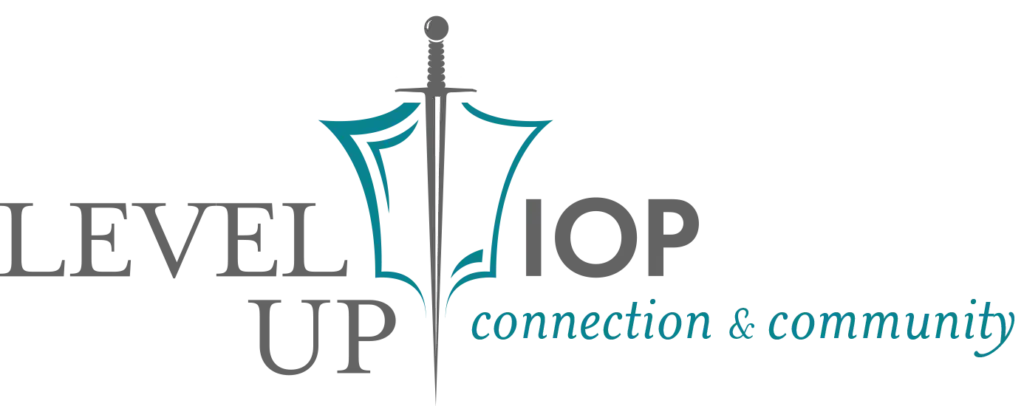Start Healing at Home
Online programs make it easier for you to find healing wherever you are.
Level Up Frequently Asked Questions: Intensive Outpatient Program FAQ (IOP)

Level Up IOP Intensive Outpatient Programs (IOP) are structured treatment programs designed for individuals dealing with mental health issues or substance use disorders.
Below are some frequently asked questions about IOPs.
These FAQs aim to answer the most common questions about Intensive Outpatient Programs, providing clarity and guidance to help you make informed decisions about your mental health care and addiction.
Table of Contents
Navigating the world of mental health care can be overwhelming, Level Up Intensive Outpatient Program FAQ can help you understand if an IOP is the right level of support for you.
Intensive Outpatient Programs (IOPs) have emerged as a crucial option for many individuals and families, offering a balanced approach that provides comprehensive care while allowing participants to maintain their daily routines.
However, with this option comes many questions about what an IOP entails, how it works, and whether it fits your situation.
To help you better understand this critical treatment option, we’ve compiled a list of frequently asked questions (FAQs) about mental health IOPs.
Whether you’re considering an IOP for the first time or are looking to deepen your understanding, these FAQs are designed to provide clear and concise answers to common concerns, guiding you toward making the best decision for your mental health journey.
An Intensive Outpatient Program (IOP) is a treatment option that provides a higher level of care than traditional outpatient therapy but does not require 24-hour supervision like inpatient programs.
IOPs typically involve several hours of treatment per week, allowing individuals to receive support while maintaining their daily responsibilities.
It is designed to provide comprehensive support for teens and adults dealing with significant mental health issues, such as anxiety, depression, or substance abuse.
Unlike inpatient programs, in an IOP allows you to live at home and attend therapy sessions several times a week, allowing you to continue with your daily activities while receiving intensive care.
IOPs are suitable for individuals who:
– Have a substance use disorder or mental health condition that requires more support than standard outpatient therapy.
– Are transitioning from inpatient treatment and need continued care.
– Have a stable living situation and support system.
– Are motivated to engage in treatment and make positive changes.
– Reentry from incarceration.
– Individuals that do not require 24-hour supervision.
It is ideal for teens and adults with moderate to severe mental health challenges, those transitioning from inpatient care, incarceration or those who have not responded well to weekly therapy sessions.
IOPs typically offer a variety of evidence-based therapies, including:
- Cognitive Behavioral Therapy (CBT): Focuses on changing negative thought patterns and behaviors.
- Dialectical Behavior Therapy (DBT): Helps with emotional regulation and coping strategies.
- Attachment-based family therapy (ABFT) supported family therapy model specifically designed to target family and individual processes associated with adolescent suicide and depression
- Internal Family Systems (IFS): is a type of psychotherapy that helps people identify and heal their inner sub-personalities, or “parts”, to improve their lives.
- Group Therapy: Provides peer support and a sense of community.
- Family Therapy: Involves the family in treatment to improve communication and relationships.
- Individual Therapy: Offers one-on-one sessions with a therapist to address specific issues.
- Experiential Therapy: Experiential therapy involves activities like role-play, props, music, or art to process negative emotions.
- Narrative therapy: a form of therapy that aims to separate the individual from the problem, allowing the individual to externalize their issues rather than internalize them.
- Expressive therapy: uses forms of creative expression such as art, music, and dance to help people explore and transform difficult emotional and medical conditions.
- EMDR Therapy: if your therapist feels you need EMDR this would be part of your individual sessions.
The duration of an IOP can vary based on individual needs and the specific program. Generally, IOPs last from a few weeks to several months, with participants attending sessions multiple times a week.
Sessions usually occur 3 to 5 days a week for a few hours daily.
The exact schedule and length of the program are tailored to each individuals progress and goals.
Participants in Level Up IOP attend sessions several times a week, often for 3 hours per day.
Yes, most IOPs are designed to accommodate work and academic schedules.
Programs often offer late afternoon or evening sessions, and many provide educational support to help participants keep up with daily life.
For teens, communication between the IOP and the school is standard to balance the teen’s academic and treatment needs.
For adults, the flexibility of an IOP allows them to receive the therapeutic support needed while working.
Family involvement is not just a component, but a critical and integral part of an IOP, especially a teen IOP.
For teens, parents and family members are required to participate in family therapy sessions designed to improve communication, resolve conflicts, and provide support for the teen’s recovery.
Adults are encouraged to involve family members when it is an essential healing component but it is left up to the adult participant to decide how much involvement family members may have.
The Level Up programs also offer parent education sessions to help parents understand their child’s mental health issues.
Progress in an IOP is typically assessed through:
– Regular check-ins with therapists.
– Self-reported assessments of mental health and substance use.
– Participation in group discussions and activities.
– Feedback from family members or support systems.
– Counselors, mentors and sometimes psychiatrists.
These assessments may involve tracking improvements in symptoms, behavior, coping skills, and overall functioning.
The treatment plan is adjusted as needed based on the progress.
If the teen or adult’s condition worsens or if they require more intensive care, the treatment team will recommend transitioning to a higher level of care, such as inpatient treatment or residential care.
This decision is made collaboratively with the individual, and family, taking into account the specific needs and circumstances.
When selecting an IOP, consider the following factors:
- Accreditation: Ensure the program is licensed and accredited.
- Specialization: Look for a program that specializes in teen and adult mental health.
- Therapeutic Approach: Choose a program that uses evidence-based therapies tailored to your teen’s needs.
- Staff Expertise: Verify that the therapists and counselors have experience or are supervised by experienced licensed therapists.
- Success Rates: Research the program’s success rates and read reviews or testimonials.
After completing an IOP, teens and adults should continue with regular outpatient therapy to maintain their progress.
The IOP is NOT meant to heal someone within the program timeframe. An IOP is meant to help jump start healing and to engage at a much higher level.
An IOP team will create an aftercare plan, which may include ongoing therapy, support groups, and strategies for managing potential triggers or setbacks.
Family support remains crucial during this transition period to ensure lasting recovery.
Many insurance plans do cover the cost of an IOP, but coverage varies depending on the provider and the specifics of the policy.
It’s important to contact us so we can help you understand and to verify coverage details and understand any out-of-pocket costs.
It is essential to check with your insurance provider to understand the specifics of your plan, including any co-pays or deductibles.
It’s common for teens to feel hesitant or resistant to joining an IOP.
Open communication is critical—talk with your teen about their concerns and the benefits of the program.
It may also help to involve a Level Up mental health professional in the conversation, so we can address any fears or misconceptions and provide reassurance about the process.
Most clinicians, when asked this question, agree that in-person IOPs are better; however, it’s not feasible for everyone to attend in person therefore online options are still an exceptional choice for healing and support.
The decision ultimately depends on what will best meet the specific needs and circumstances.
In-person IOPs may be more effective for individuals who need more structure, hands-on support, or benefit from in-person social interactions.
Online IOPs are better for participants who require more flexibility, feel more comfortable engaging from home, or live in areas where in-person services are not readily available.
For some, a hybrid approach—combining both in-person and online sessions—might offer the best of both worlds.
Research indicates that While precise success rates may vary depending on several factors, research suggests that IOPs can be just as effective as inpatient programs in achieving long-term recovery.
The success of IOPs is influenced by factors such as the level of support provided, the individual’s commitment, and the quality of care.
(McCarty, D., Braude, L., Lyman, D. R., Dougherty, R. H., Daniels, A. S., Ghose, S. S., & Delphin-Rittmon, M. E. (2014). Substance Abuse Intensive Outpatient Programs: Assessing the Evidence. Psychiatric Services (Washington, D.C.), 65(6), 718. https://doi.org/10.1176/appi.ps.201300249)
Some benefits of IOPs include:
- Flexibility in maintaining daily responsibilities while receiving treatment.
- Access to a supportive community of peers.
- Structured environment that promotes accountability.
- Comprehensive care that addresses both mental health and substance use issues.
Intensive Outpatient Programs offer a vital resource for individuals seeking help for mental health and addiction issues.
By providing structured support while allowing for daily life engagement, IOPs can be a practical step toward recovery.
If you or someone you know may benefit from an IOP, consider contacting a healthcare professional for guidance.
We're Here for Your Support and Healing.
Do you have any more questions, let us know?

